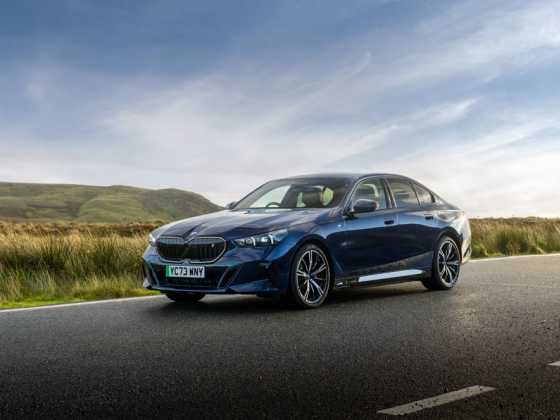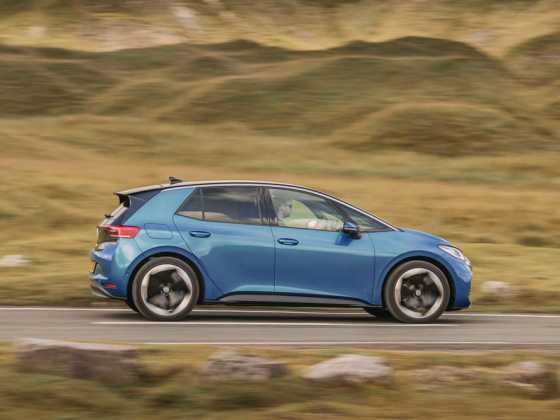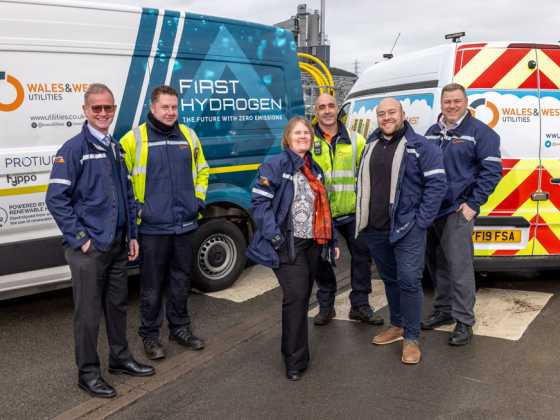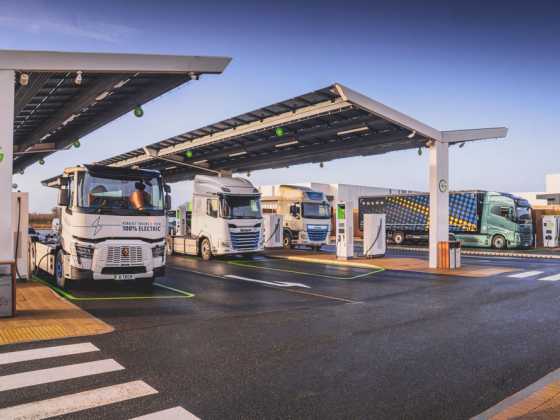Decarbonising HGVs using sustainable low carbon fuels
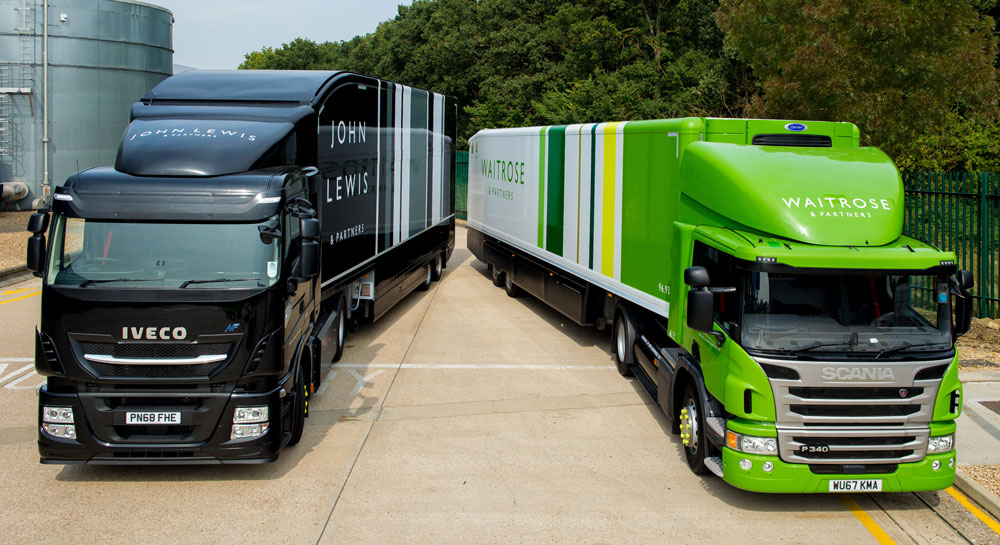
Renewable fuels play a crucial role in reducing carbon emissions from HGVs. But what options are best, and how can fleet operators be sure of their sustainability claims? Gloria Esposito, head of sustainability at Zemo Partnership, explains how the Renewable Fuels Assurance Scheme can help
Climate change is the most pressing environmental challenge facing society today, increasingly recognised as a materially important topic for businesses of all sizes. The 2020s are a critical decade for delivery of climate ambition. The window of opportunity for effective action to secure a sustainable future for all is rapidly closing. The world’s remaining carbon budget will be exhausted within the decade if emission rates continue at their current levels. As warming increases, so does the risk of reaching irreversible tipping points in climate and ecological systems, highlighting the increasingly urgent need for action. The world’s leading climate scientists (the IPCC) have made it clear, “without immediate and deep emissions reductions across all sectors, limiting global warming to 1.5°C is beyond reach”.
Disclosure of GHG emissions
Companies and public bodies across the UK are setting ambitions to meet net zero greenhouse gas (GHG) emissions. Disclosure of GHG emissions is becoming a mandatory requirement for businesses in the UK and internationally. The Companies Act 2006 requires UK quoted companies to measure and report their GHG emissions as part of their annual Directors’ Report. A growing number of organisations are measuring and disclosing GHG emissions as part of their Corporate Sustainability Reporting. Many UK businesses are joining the Science Based Target Initiative, setting ambitious GHG emission reduction targets to 2030 and 2050.
Strong attention is being given to companies not only tackling their own carbon footprint but also addressing emissions arising from their supply chain.
Transport-related emissions
Decarbonising transport related emissions will feature heavily in nearly every company’s climate change mitigation strategy.
Replacing incumbent diesel HGVs with battery electric or hydrogen fuel cell technologies is without doubt an aspiration of most fleet review exercises. HGVs are however at the early stages of the ‘electrification’ journey, especially artic trucks. Government statistics reveal that approximately 250 electric trucks are operating on UK roads, with less than one per cent of new truck sales attributed to ‘zero tailpipe emission’ vehicles. The mass market transition to zero tailpipe emission HGVs will, however, take more than fifteen years.
Sustainable low carbon fuels offer a valuable complimentary pathway to decarbonising diesel HGVs during the shift to fully electric propulsion. In the medium to long term, renewable fuels can help lower the GHG emissions of residual diesel HGVs, thereby enabling fleet operators to completely decarbonise their operations.
Long and regional duty cycles benefit the most given their high mileage and fuel use. Opportunities also exist for HGVs with heavy payloads, which will be difficult to electrify.
Renewable fuels
Two types of renewable fuels are gaining traction in HGV fleets: biomethane and hydrotreated vegetable oil (HVO). Both biomethane and HVO supplied in the UK are produced from 100 per cent sustainable feedstocks, derived from biomass waste. GHG emissions are very low compared to fossil diesel. Zemo Partnership has developed a voluntary initiative to verify the traceability of renewable fuels across their supply chain, thereby ensuring transparency regarding feedstock sustainability and life cycle GHG emission savings.
The Renewable Fuels Assurance Scheme (RFAS) has approved twenty-one companies supplying sustainable low carbon fuels to commercial vehicle fleets including biofuels and renewable hydrogen. An increasing number of fleet managers are recognising the value of the RFAS, and requesting their fuel suppliers are approved under this scheme. Today, approximately 10,000 vehicles are deployed using RFAS approved low carbon fuels across the UK.
Hydrotreated vegetable oil
Narrowing the lens on HVO, this is one of the most common renewable paraffinic diesel products on the market today. HVO is currently achieving life cycle GHG emission savings between 86 per cent and 92 per cent compared to fossil diesel, when produced from second generation biomass feedstocks. HVO is as drop-in fuel, meaning it can be used in existing engines and fuel infrastructure. Furthermore, most OEM warranties remain valid. There is no domestic HVO production in the UK; the fuel is imported from Europe and the US, where capacity is increasing. Over next few years renewable diesel produced from more advanced conversion technologies and feedstock will enter the UK market, including the pyrolysis of solid biomass waste. Over a hundred companies have switch to HVO including DHL, XPO Logistics, CEVA Logistics London of Hackney, Travis Perkins, British Gypsum and Pepsi-Co.
One of the stumbling blocks for HVO is its higher price compared to retail diesel. Regrettably, this is hindering some fleet managers from adopting this in their fleet decarbonisation strategy, particularly small fleet operators who comprise of a sizeable proportion of the HGV fleet. Interestingly, some fuel suppliers are offering blends of HVO, thereby providing a lower cost route to fleet decarbonisation.
Biomethane
Turning the focus now to biomethane, which has experienced very strong adoption rates in the freight sector. Both compressed and liquified vehicles are available as rigid and artic HGVs up to 44t gross vehicle weight (GVW), with the latest model offering a range of more than 300 miles. Artic HGV fleets have experienced the greatest take-up over the past few years. Biomethane is produced in the UK and Europe, predominantly via the anaerobic digestion of food waste, sewage sludge and agricultural residues. When biomethane is produced from wet manure, the life cycle GHG emissions are carbon negative, as methane capture results in significant carbon abatement. Today, biomethane life cycle GHG emissions savings range from 70 per cent to 124 per cent. The lower fuel duty rate for biomethane has proved to be a highly beneficial incentive for fleet operators, making a compelling business case for switching to biomethane HGVs. Companies which have committed to operating biomethane HGVs include John Lewis Partnership, Ocado, Sainsbury’s, Howard Tenens, UPS, Amazon, Arla Foods, London Borough of Islington and Lawsons building merchants.
High blend biodiesel
One further low carbon fuel should be highlighted, this being high blend biodiesel. Biodiesel B20 and B30 could offer an interesting opportunity for decarbonising HGVs for some fleet operators. The UK has several companies producing high blend biodiesel using domestic and international waste-based feedstocks. A European Fuel Quality Standard now exists for B20/B30; EN 16709. Whilst only a few OEMs warranty their vehicles to run on B20/30, it is possible for fleet operators to independently purchase a warranty to cover their HGV engine and parts for running on higher blends of biodiesel.
One of the pioneers of B20 is Metroline, who has used B20 in their 1,200-strong bus fleet for over a decade. The company reports no maintenance or performance issues using B20, moreover, no additional maintenance cost compared to their conventional diesel buses. HGV fleet operators who are currently deploying B30 include McGregor Logistics and haulier Steward Hymas.
Bridging the gap
To achieve net zero by 2050, road transport emissions will need to drop substantially, in the region of 80 per cent by 2035. This requires dramatic cuts in fossil fuel use, combined with the increased adoption of sustainable low carbon fuels and zero tailpipe emission technologies. There will be no single solution for curtailing diesel HGV fleets’ GHG emissions, moreover a variety of abatement pathways will be required to meet different HGV applications and operational requirements. Sustainable low carbon fuels have an integral role to play in reducing GHG emissions from HGVs, bridging the gap on the journey to zero tailpipe emission fleets.
It is essential that government develops a stronger policy framework related to both the supply and demand of low carbon fuels in the UK. Hopefully, this will be reflected in the DfT’s forthcoming Low Carbon Fuels Strategy. Two big ticket items would be raising the current targets set in the Renewable Fuel Transport Fuel Obligation and introducing a fiscal incentive for low carbon liquid fuels such as biodiesel B30 and HVO.

